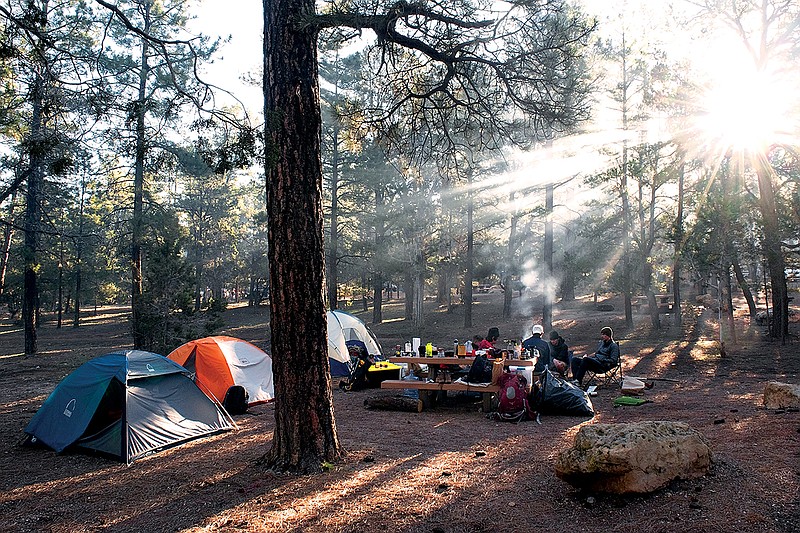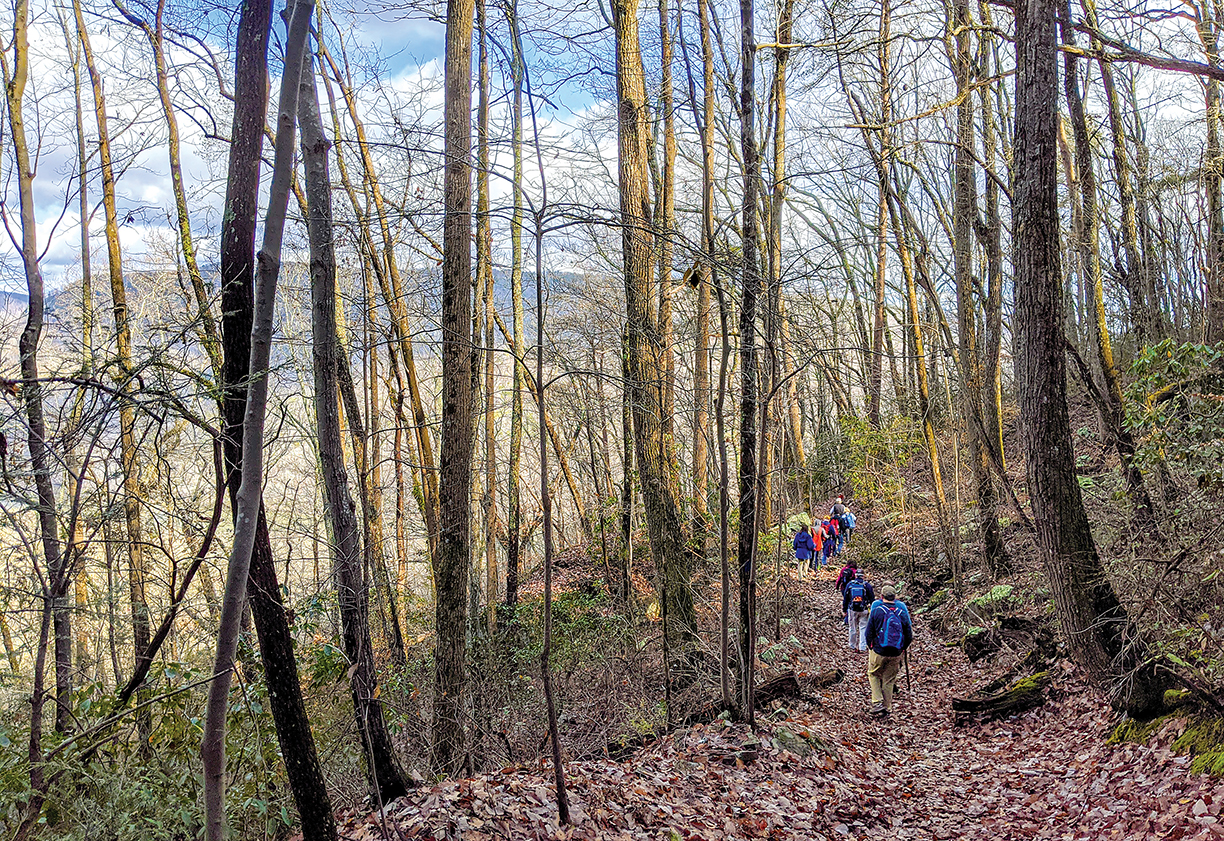As we transition to a new way of life due to the coronavirus pandemic, communities across the tri-state region of northeast Alabama, northwest Georgia, and southeast Tennessee are well-positioned to take advantage of a growing outdoor economy that celebrates natural assets and entrepreneurial spirit.
The tri-state Greater Chattanooga region has long been attractive to outdoor enthusiasts. While Chattanooga itself - twice declared "Best Town Ever" by Outside magazine - may be the region's metropolitan anchor, smaller towns and cities in the surrounding rural areas are well-positioned to see economic returns because of their proximity to beautiful natural spaces and increases in local and regional travel.
The onset of the COVID-19 pandemic in 2020 disrupted the travel industry enormously, while sparking a migration from large cities in favor of smaller communities and outdoor activities associated with rural landscapes. Even before the pandemic, research shows growing interest in regional exploration and adventure-based travel.
Conducted just before the pandemic, a survey of 632 recreationists across the tri-state region by Thrive Regional Partnership and the University of Tennessee at Chattanooga indicates that recreationists desire to explore the less-traveled corners and communities of our Appalachian landscape.
The research shows that, currently, recreationists in this region most often visit destinations in Hamilton, Marion, Rhea and Polk counties in Tennessee, and Walker County, Georgia. This makes sense considering the location of high-profile places such as Chattanooga's riverfront, Lookout Mountain, the Cumberland Trail and the Ocoee River.
However, when asked where recreationists would like to play, the results saturate the map beyond Hamilton County, most notably highlighting Jackson County, Alabama, as well as Whitfield and Murray counties in Georgia as destinations of interest. In these locations, visitors will discover the Walls of Jericho, the Pinhoti Trail and new mountain biking trails in Dalton, Georgia's backyard.
By understanding the visitation patterns of recreationists, we can better understand the economic implications for communities across Greater Chattanooga. The Thrive/UTC survey indicates that, on average, people spend $5,890 per year to engage in outdoor activities in the tri-state region, a figure that multiplies given the social nature of outdoor recreation.
Thrive's survey was conducted prior to the pandemic - which has only accelerated outdoor recreation in America. In an era where socializing indoors is considered risky, more people understand the value of the outdoors as a safe, healthy way to spend their time. Research from the Outdoor Industry Association shows there has been an uptick in outdoor recreation activities, especially running, cycling and hiking, further increasing the economic drive of the outdoor sector.
On a local level, the Thrive/UTC survey highlights a clear opportunity for recreation-based entrepreneurship in cities and towns across the region. Recreationists enjoy engaging in the communities they visit while pursuing outdoor activities. After a hike or a climbing trip, friends and families would prefer to support local businesses such as coffee shops, diners and breweries as opposed to chain restaurants. Businesses such as affordable lodging, natural grocers and gear shops to stock up on supplies also appeal to outdoor enthusiasts.
When gatherings are once again considered safe, festivals and events present big opportunities to engage outdoor enthusiasts and consumers. The Thrive/UTC survey reports a strong 35% of respondents who participated in at least two events in 2019. By adding a recreation component such as a trail race to already popular festivals such as South Pittsburg, Tennessee's Cornbread Festival and LaFayette, Georgia's Honeybee Festival, more people may be encouraged to stay and engage longer in a city or town.
Research shows that the outdoors boost community health, character and bottom lines. By including outdoor recreation in decision-making and planning strategies, communities can open the door to unique, asset-based economic opportunities that celebrate natural heritage.
Thrive Regional Partnership is an independent 501c3 that inspires responsible growth through conversation, connection, and collaboration in the tri-state greater Chattanooga region.
Tap into the outdoor potential of your community
* Know the market. Cities and towns across the region can take note of the highly active market for outdoor recreation. Walker County, Georgia, for example, launched its Walker Rocks campaign, featuring images of hiking, mountain biking and more, specifically to showcase the unique outdoor activities available in the community.
* Promote proper use and safety. The concerning flipside of the outdoor recreation industry is the potential to "love our places to death." To sustain these places and the economic activity associated with them, it is critical that communities promote good stewardship such as Leave No Trace and safety. After seeing a 50% increase in rescue operations in Hiwassee/Ocoee State Park, the Southeast Tennessee Tourism Association collaborated with several rural chambers of commerce and others to create the #AdventureSmartTN campaign to promote responsible adventures in the great outdoors.
* Lead the way with wayfinding. Recreationists like to know where to go, especially when they are traveling to a destination. By providing clear signage, trail markers and trailheads, cities can enhance the visitor experience and prepare for potential traffic. People also really value online information so that they can prepare for their visit ahead of time. This is a great way to highlight proper outdoor etiquette and promote local businesses.

